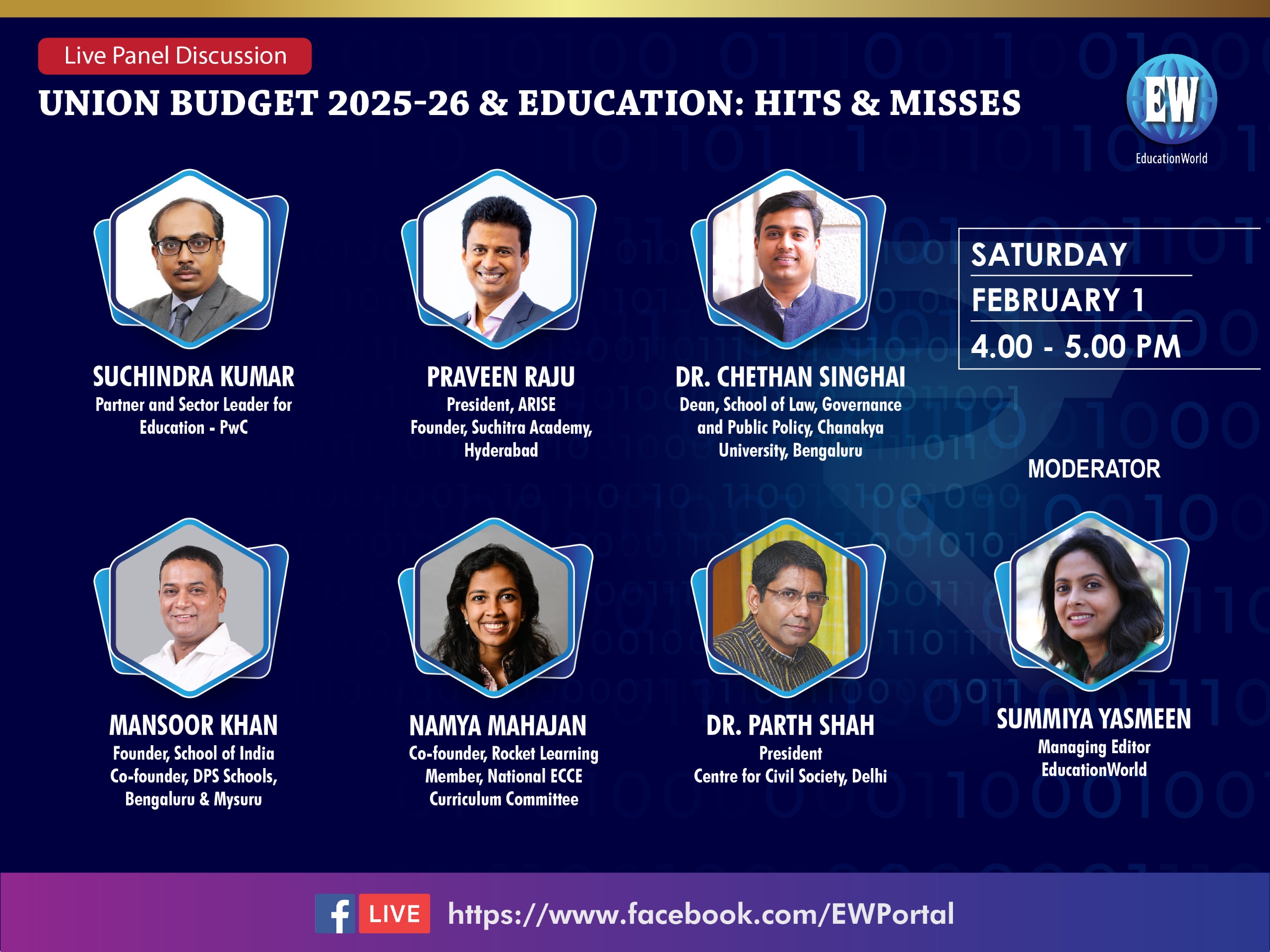Panel discussion on Union Budget 2025-26 & Education: Hits & Misses here
Opinion: The expert panel on Union Budget 2025-26
Union education minister Nirmala Sitharaman presented her eighth budget on Saturday. Experts across the country have expressed mixed responses to the centre’s move to improve digital infrastructure through the provision of digital study material, improved internet connectivity and AI technology-based developments.
In a panel hosted by EducationWorld on Saturday after the presentation of the budget; discussing the Union Budget 2025-26 and its implications for the education sector in India, participants expressed reactions on aspects such as increased funding for early childhood education and skilling initiatives, as well as concerns about insufficient overall allocation and missed opportunities for reform.
Mansoor Khan, who heads the DPS schools in Bangalore, expressed disappointment with the budget, stating that it was an opportunity lost for the education sector. He criticized the lack of significant increase in the budget for education and the focus on slogans rather than performance. He emphasized the need for better infrastructure and teacher training in government schools, and the importance of addressing dropout rates.
Namya Mahajan, co-founder of Rocket Learning, on the other hand, welcomed the increased budget for early childhood care and education, particularly the revision of nutrition cost norms and the establishment of a separate vertical for early childhood care and education. She also highlighted the importance of increased funding for children under 6, as they will inherit the country in the future.
Meanwhile, Praveen Raju, President FICCI ARISE, highlighted the significant jump in budget for school education and the potential of AI in education. He also emphasized the need to recognize and promote the contribution of private educators and consider public-private partnerships, direct benefit transfer, and low-cost capital to drive meaningful changes in the education system.
Parth Shah, President Centre for Civil Society, discussed the focus of the Economic Survey on the social sector, particularly the impact of work culture, lifestyle, and eating habits on mental health. He expressed surprise at the lack of discussion on deregulation in the social sector, despite the general tone of the survey being on deregulation. Parth also highlighted the need for a different approach to the role of the state and the market in the education sector, given the high percentage of children attending private schools.
Chetan Singai, Dean, School of Law, Governance and Public Policy, Chanakya University, Bengaluru discussed the importance of trust and public disclosure in the regulatory system, emphasizing the need for a differentiated regulatory framework. He also highlighted the critical role of the State in R&D and the need for reform in processes and operations. Chetan suggested shifting the focus from the share of GDP to the share of public expenditure, as there are several ministries that indirectly spend on education. He also pointed out the need for repositioning higher education institutions into type 1, 2, and 3 universities by 2035.
The panelists discussed the Indian government’s education budget, expressing disappointment and dissatisfaction with the lack of focus on public universities and colleges, early childhood education, and dedicated funding for social science research. They emphasized the need for a more inclusive education policy, increased spending, and policy reforms. The panelists also highlighted the importance of teacher development and improving learning outcomes, as evident in the poor literacy rates among children. They concluded by stressing the need to prioritize education in the national agenda to achieve the goal of a 30 trillion GDP economy by 2047.

















Add comment